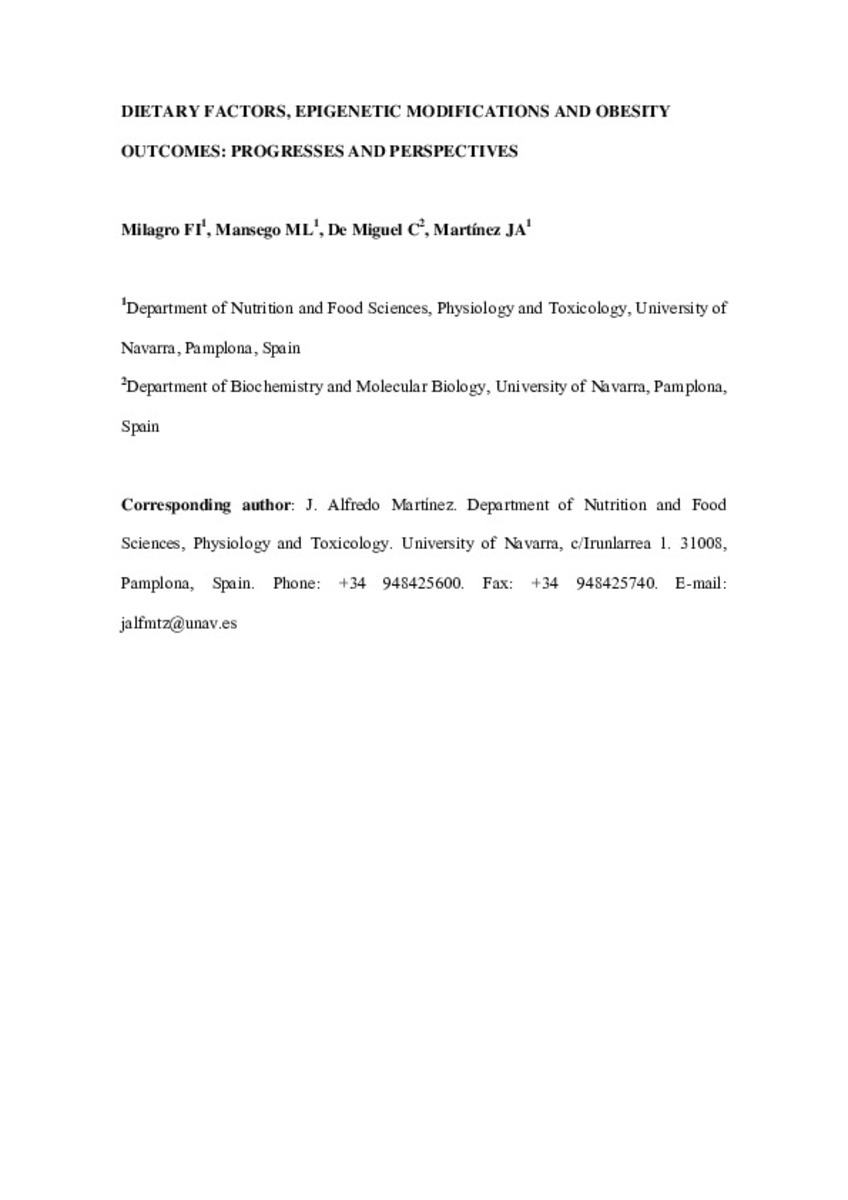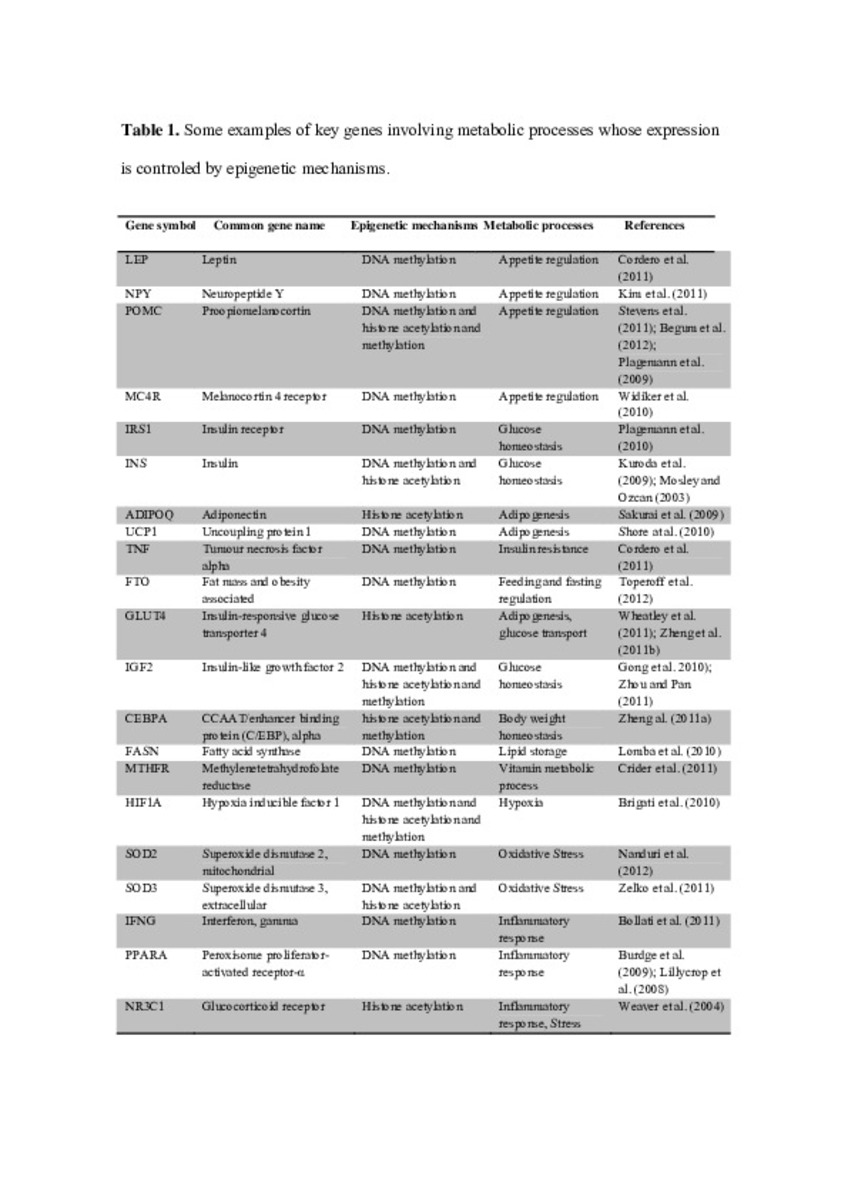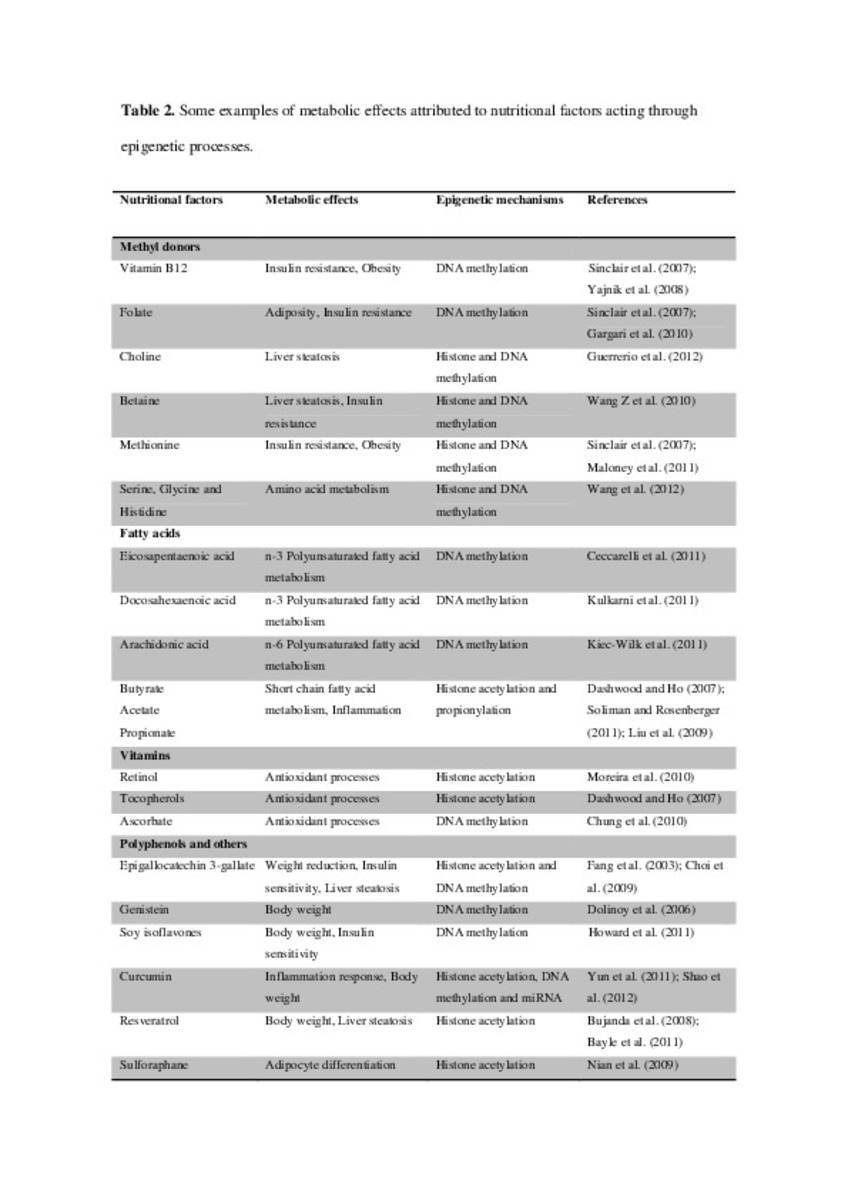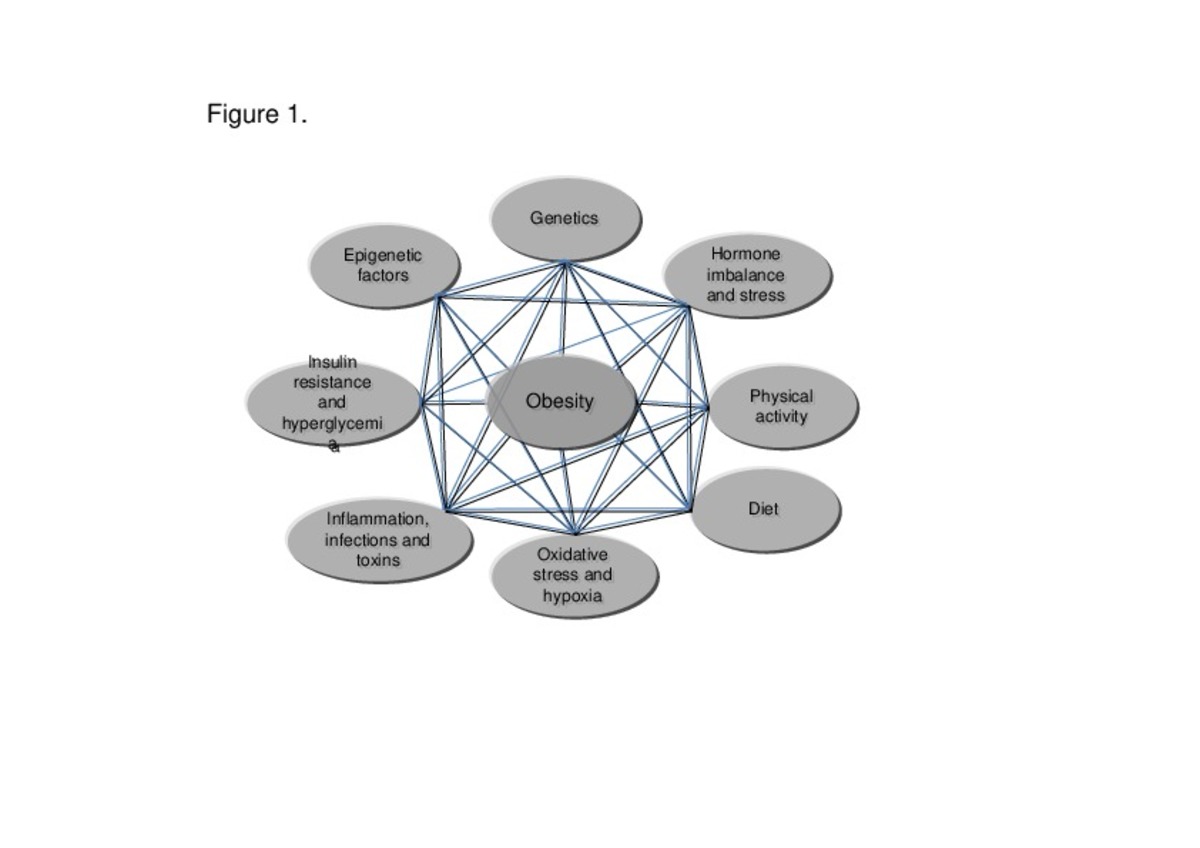Registro completo de metadatos
| Campo DC | Valor | Lengua/Idioma |
|---|---|---|
| dc.creator | Milagro-Yoldi, F.I. (Fermín Ignacio) | - |
| dc.creator | Mansego-Talavera, M.L. (María Luisa) | - |
| dc.creator | Miguel-Vázquez, C. (Carlos) de | - |
| dc.creator | Martinez, J.A. (José Alfredo) | - |
| dc.date.accessioned | 2013-03-06T17:24:12Z | - |
| dc.date.available | 2013-03-06T17:24:12Z | - |
| dc.date.issued | 2012 | - |
| dc.identifier.citation | Milagro FI, Mansego-Talavera ML, De Miguel C, Martínez JA. Dietary factors, epigenetic modifications and obesity outcomes: Progresses and perspectives. Mol Aspects Med (0). | es_ES |
| dc.identifier.issn | 0098-2997 | - |
| dc.identifier.uri | https://hdl.handle.net/10171/28106 | - |
| dc.description.abstract | Nutritional factors play a life-long role in human health. Indeed, there is growing evidence that one of the mechanisms by which nutrients and bioactive compounds affect metabolic traits is epigenetics. Complex interactions among food components and histone modifications, DNA methylation, non-coding RNA expression and chromatin remodeling factors lead to a dynamic regulation of gene expression that controls the cellular phenotype. Although perinatal period is the time of highest phenotypic plasticity, contributing largely to developmental programming, also during adulthood there is evidence about a nutritional influence on epigenetic regulation. Similarly to type 2 diabetes, hypertension, atherosclerosis and other metabolic disorders, obesity predisposition and weight loss outcomes have been repeatedly associated to changes in epigenetic patterns. Different non-nutritional risk factors that usually accompany obesity seem also to be involved in these epigenetic modifications, especially hyperglycemia, inflammation, hypoxia and oxidative stress. There are currently three major objectives in epigenetic research in relation to obesity: to search for epigenetic biomarkers to predict future health problems or detect the individuals at most risk, to understand the obesity-related environmental factors that could modulate gene expression by affecting epigenetic mechanisms, and to study novel therapeutic strategies based on nutritional or pharmacological agents that can modify epigenetic marks. At this level, the major tasks are: development of robust epigenetic biomarkers of weight regulation, description of those epigenetic marks more susceptible to be modified by dietary exposures, identification of the active ingredients (and the doses) that alter the epigenome, assessment of the real importance of other obesity-related factors on epigenetic regulation, determination of the period of life in which best results are obtained, and understanding the importance of the inheritance of these epigenetic marks. | es_ES |
| dc.language.iso | eng | es_ES |
| dc.publisher | Elsevier | es_ES |
| dc.rights | info:eu-repo/semantics/openAccess | es_ES |
| dc.subject | Histone modifications | es_ES |
| dc.subject | DNA methylation | es_ES |
| dc.subject | Hyperglycemia | es_ES |
| dc.subject | Inflammation | es_ES |
| dc.subject | Oxidative stress | es_ES |
| dc.subject | Hypoxia | es_ES |
| dc.subject | Polyphenols | es_ES |
| dc.subject | Epigenetic biomarkers | es_ES |
| dc.title | Dietary factors, epigenetic modifications and obesity outcomes: Progresses and perspectives | es_ES |
| dc.type | info:eu-repo/semantics/article | es_ES |
| dc.type.driver | info:eu-repo/semantics/article | es_ES |
| dc.identifier.doi | http://dx.doi.org/10.1016/j.mam.2012.06.010 | es_ES |
Ficheros en este ítem:
Estadísticas e impacto
Los ítems de Dadun están protegidos por copyright, con todos los derechos reservados, a menos que se indique lo contrario.









